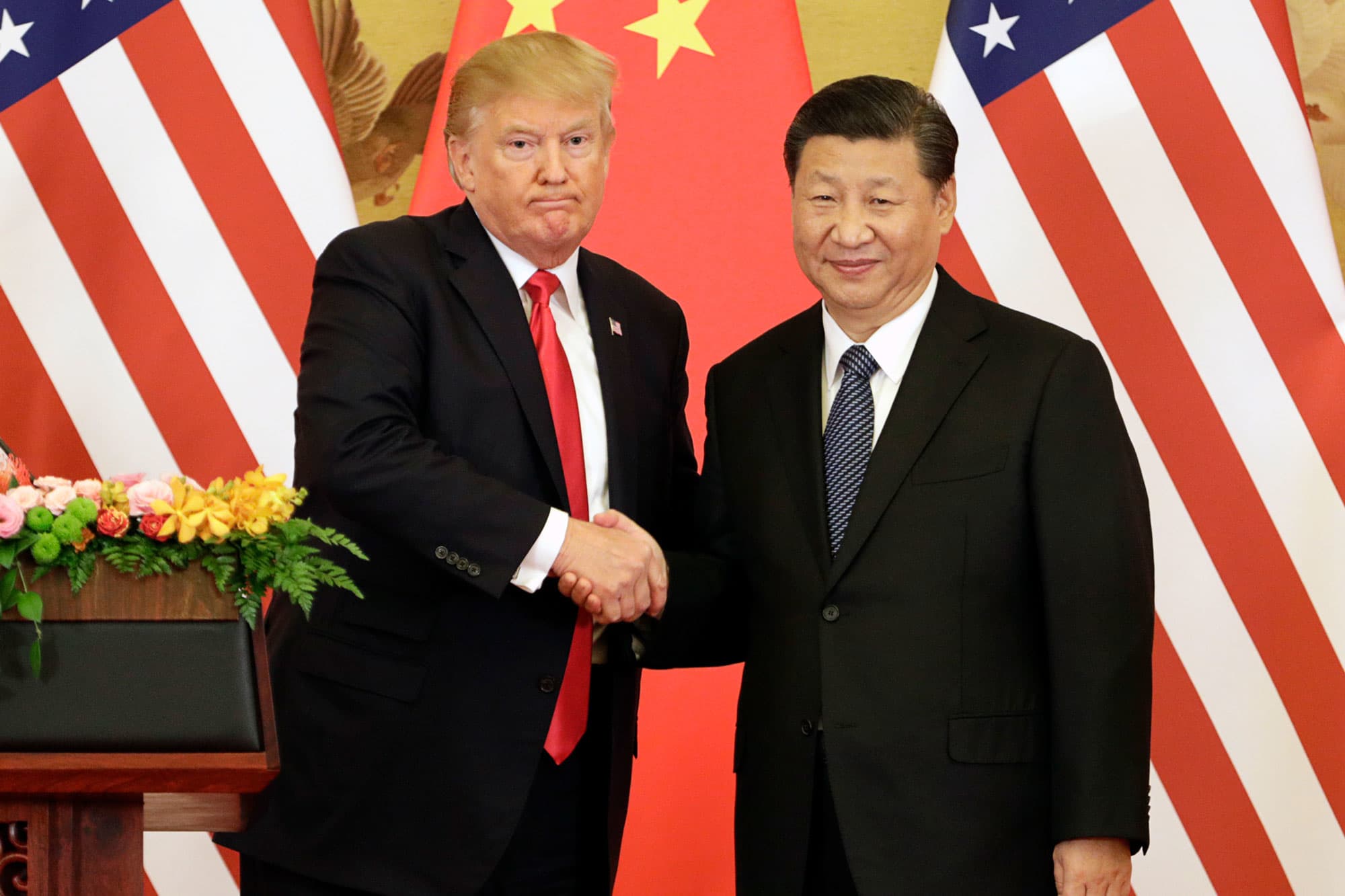President Donald Trump, left, and Xi Jinping, China's president, shake hands during a news conference at the Great Hall of the People in Beijing, China, on Thursday, Nov. 9, 2017.
Qilai Shen | Bloomberg | Getty Images
China is pushing U.S. President Donald Trump to remove more tariffs imposed in September as part of a "phase one" U.S.-China trade deal, people familiar with the negotiations said on Monday.
The deal, which may be signed later this month by Trump and Chinese President Xi Jinping at a yet-to-be determined location, is widely expected to include a U.S. pledge to scrap tariffs scheduled for Dec. 15 on about $156 billion worth of Chinese imports, including cell phones, laptop computers and toys.
A U.S. official said the fate of the Dec. 15 tariffs is being considered as part of negotiations and a potential signing trip this month.
Another source briefed on the talks said Chinese negotiators want Washington to drop 15% tariffs on about $125 billion worth of Chinese goods that went into effect on Sept. 1. They are also seeking relief from earlier 25% tariffs on about $250 billion of imports from machinery and semiconductors to furniture.
A person familiar with Beijing's negotiating position said that China is continuing to press Washington to "remove all tariffs as soon as possible."
China's request to remove the Sept. 1 duties was earlier reported by Politico, citing sources. The Financial Times newspaper also reported that the White House was considering whether to roll back the Sept. 1 tariffs, which cover some clothing items, flat-screen televisions, smart speakers and Bluetooth headphones.
Ralph Winnie, director of the China program at the Eurasia Center, said wrapping up the interim trade pact would provide a boost to both the U.S. and Chinese economies, while handing Trump an important win among farmers — a core constituency.
"It's in both countries' interest to have this trade deal," Winnie said. "If he seals the deal, it will be looked on very favorably by the American people. It's a win-win for both countries."
Since Trump took office in 2017, his administration has been pressing China to curb massive subsidies to state-owned firms and end the forced transfer of American technology to Chinese firms as a price of doing business in China.
Analysts say the phase one deal will fail to adequately address these issues, focusing largely on Chinese purchases of U.S. farm goods and intellectual property protections related to copyright and trademark issues. It will not address industrial subsidies at all.
Charles Boustany, a former congressman from Louisiana and counselor at the National Bureau of Asian Research, said any initial agreement would likely be short-term in nature and unstable.
"Even though there's some talk about a phase one agreement, we don't think it's going to be substantive in terms of addressing any of the structural problems," he said. "It would largely be a status quo situation where China continues to do what it's doing."
Some business groups complain that a central component of the "phase one" deal — increased access to China's financial services market — will fall short of its promises, because of inconsistencies in China's new foreign investment law.
In comments submitted to the Chinese government by the U.S. Chamber of Commerce, the American Chamber of Commerce in China and the U.S. Information Technology Office, the groups pointed out that Beijing's draft regulations "do not address clear differences between the treatment of China's state-owned enterprises and the private sector," according to a person familiar with the comments.
Trump had said on Friday evening that negotiations on the initial phase agreement were going well and he hoped to sign the deal with Xi at a U.S. location when work on the deal was completed.
U.S. and Chinese negotiators have been racing to finalize the text of an agreement for Trump and Xi to sign this month, a process clouded by wrangling over U.S. demands for a timetable of Chinese purchases of U.S. farm products.


